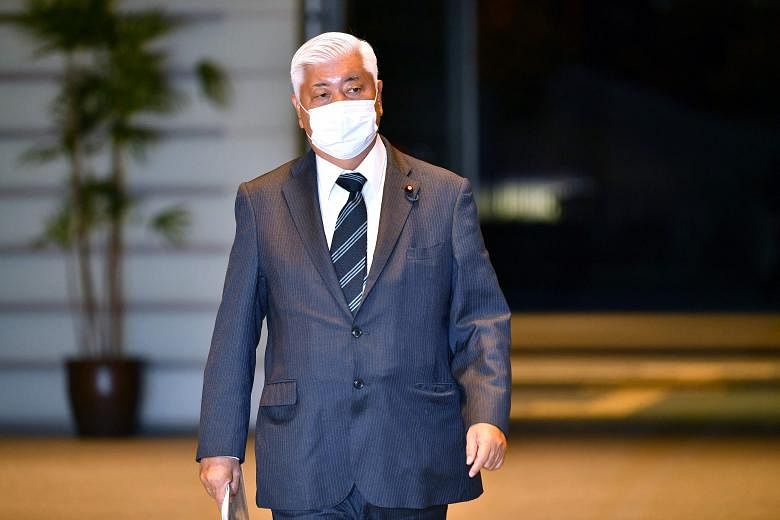TOKYO (BLOOMBERG) - Japan should do more to pressure China on human rights, an adviser to Prime Minister Fumio Kishida said in a rare interview, backing a path that could increase tensions between Asia's biggest economies.
Mr Gen Nakatani, appointed to a new human rights position created last year, said he wanted to push China harder on the issue following a parliamentary resolution this week that called on the government to probe alleged abuses.
The former defence minister had previously worked on human rights with a group of legislators from ruling and opposition parties.
Long reluctant to criticise other countries in public over human rights, Japan changed course following Beijing's clampdown on Hong Kong in 2020, a move that chilled already difficult bilateral relations - and led to the new post Mr Nakatani now holds.
The resolution "makes demands of the government in very strong terms", Mr Nakatani said in an interview with Bloomberg two days ahead of the Beijing Olympics opening ceremony on Friday.
"I believe it's important that universal values are protected in China, so I want to press China on this even harder than in the past."
China reacted angrily to the resolution, calling it "vile" and blasting Japan's "deplorable track record in human rights".
The Japan measure expressed concern about human rights in Xinjiang, as well as Tibet, Inner Mongolia and Hong Kong.
Lawmakers from Japan's ruling and opposition parties backed the motion, although some complained the wording was not strong enough. The resolution urges the Japanese government to gather information about the allegations of abuse and to work with other countries to form a plan to help those affected.
Asia's second-largest economy treads a narrow path as it seeks to maintain ties with the United States, its only formal military ally, while avoiding alienating China, its giant neighbour and biggest trading partner.
Japan's balancing act will be on display at the Olympics.
Tokyo effectively threw its support behind the United States-led diplomatic boycott of the games by holding off on sending government representatives.
Instead, it is dispatching three top members of the teams that helped organise last year's Tokyo Olympics and Paralympics, which China said was a welcome move.
While officials have referred to concern about reports of human rights violations in Xinjiang, Japan's government hasn't backed such reports as fact.
By contrast, the US has labelled China's treatment of the Uighurs "genocide".
China has consistently denied allegations that it oppresses Muslim Uighurs, dubbing them "the lie of the century".
With Western governments toughening their stance on the issue, Japan must prepare guidelines "at top speed" to help corporations comply with new overseas laws, or they may face obstacles to trade, Mr Nakatani added.
Last year, the US customs agency blocked a shipment of Japanese clothing giant Fast Retailing Co's Uniqlo shirts for violating an order prohibiting imports of items suspected to be produced by forced labour from China's state-owned Xinjiang Production and Construction Corps.
US President Joe Biden in December signed into law a Bill banning goods from Xinjiang, unless companies can prove they aren't made with forced labour.
The German Parliament also passed a human rights due diligence law in June last year, according to the Business & Human Rights Resource Center.
Such legislation presents many firms with difficulties, given that Xinjiang is a source for cotton used in clothing and is a key location for producing polysilicon used in solar panels.
Intel Corp, which asked suppliers not to use labour or products from Xinjiang, apologised after a storm of criticism on Chinese social media.
A survey published by Japan's Ministry of Economy, Trade and Industry in December gained responses from only about a quarter of the 2,786 major companies contacted.
Just over half of respondents said they had a human rights due diligence policy in place.
Mr Nakatani said attitudes are changing rapidly.
"Among large companies that have overseas dealings, human rights are seen as a big issue, even more so than climate change," he said.
"Preparations are proceeding very fast."

